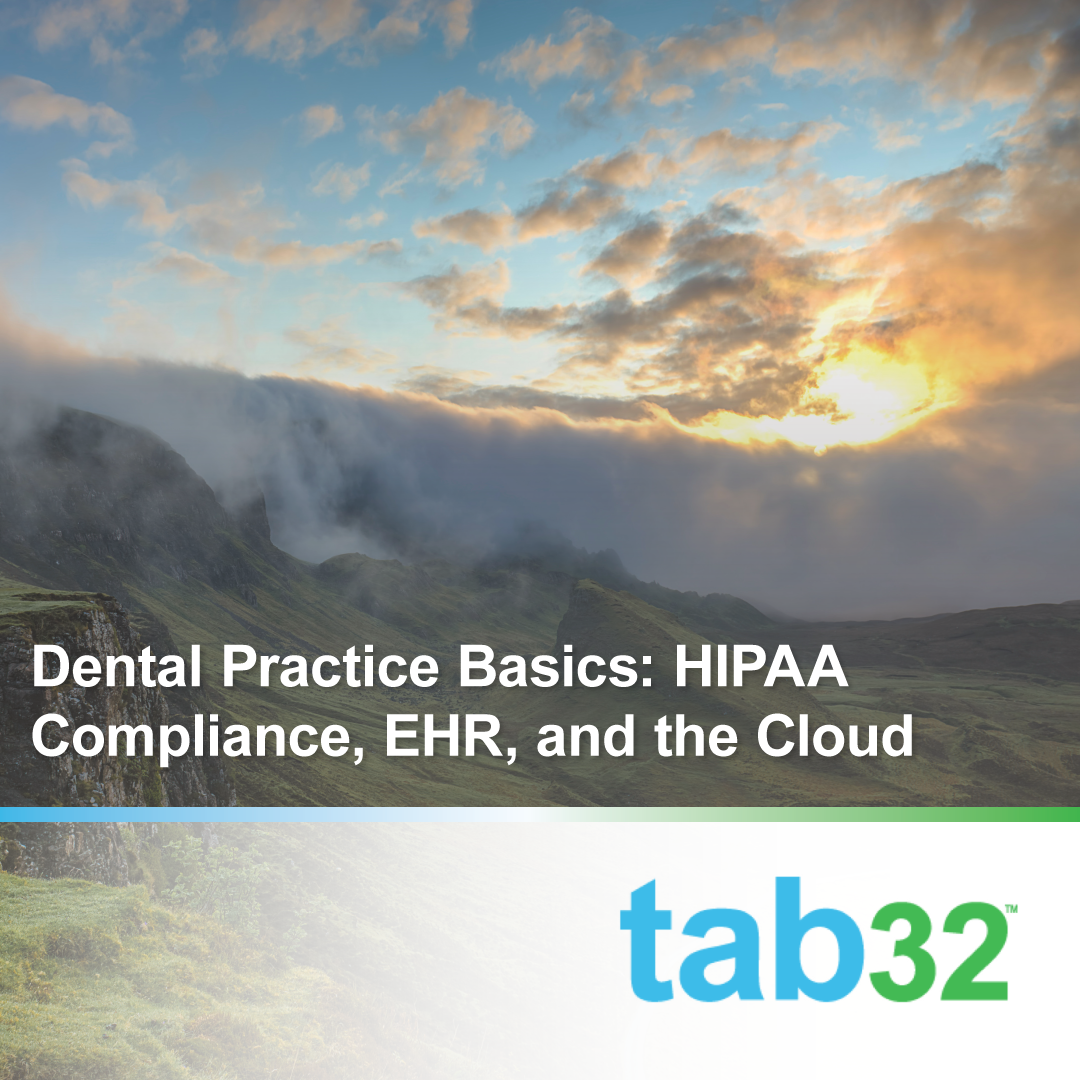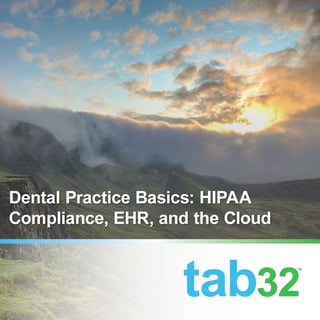
 For many dentists (and other healthcare providers) ensuring your patient data is HIPAA compliant can cause worry and concern. This isn't a new issue: historically, healthcare providers (dentists included) have shied away from using cloud-based software due to security and HIPAA compliance concerns. The good news is that newer software providers are creating HIPAA compliant solutions for patient data. When it's time for you to select a software for your new dental practice, there's no reason to not give cloud-based practice software a thorough look. Here are a few reasons why.
For many dentists (and other healthcare providers) ensuring your patient data is HIPAA compliant can cause worry and concern. This isn't a new issue: historically, healthcare providers (dentists included) have shied away from using cloud-based software due to security and HIPAA compliance concerns. The good news is that newer software providers are creating HIPAA compliant solutions for patient data. When it's time for you to select a software for your new dental practice, there's no reason to not give cloud-based practice software a thorough look. Here are a few reasons why.
Due to the limited access and variety of security levels available, cloud-based practice software is less prone to security breaches. Your software provider will be able to provide each person in your office the level of access that he/she needs. With everyone getting the right access and their own login, you'll know exactly who can get to what data in your system.
Additionally, when you choose a service-provider rather than using an on-site system, the provider will be up to date on all the latest security issues. This provides you with a level of security that you couldn't duplicate in-house without significant expense. Of course, security and HIPAA compliance is going to be different for every vendor. Be sure to dig in deep to what they offer and make sure what they have aligns with your needs.
When you choose a cloud-based dental practice platform that is HIPAA compliant, you have less to worry about. They'll ensure on their end that all the servers and access points are up to the appropriate levels. This frees you from having to worry about updated HIPAA rules, software updates, and more. If you are working with the right system, their team will worry about these details for you.
On the other hand, if you don't use a could-based system, you'll need to ensure your system is up-to-date and HIPAA compliant. Of course, you won't do it yourself (most likely), but you'll have to hire someone or have someone from your vendor come in and update everything. Not only does that cost you time and potentially system downtime and delays, it costs money.
Although overall it's easier for your practice to utilize a cloud-based system, that doesn't mean you can forego all security measure and responsibilities. You'll need to understand best practices when it comes to keeping patient data safe and what you need to do to stay HIPAA compliant in your practice. This includes:
1. Securing devices: any device that accesses your software needs to be secure. That means up-to-date anti-virus and anti-malware on computers. Locking screen savers for all devices. Using *real* passwords and not recycling or using password123 for every site.
2. Securing data: make a general rule to not download any patient data onto the device. All this information should be kept in the cloud. Email isn't secure either, so be sure to keep all patient data in the system and not in email messages.
3. Conducting a security risk assessment: use a tool (like this one) to help you assess the risk and vulnerabilities of your practice. These tools will help you see where weaknesses are and where you need to revise or write policies for your office and staff.
Our all-in-one cloud-based dental software offers you a simple, easy-to-use suite of products. From EHR to practice management and even patient communications, we'll help you build the dental practice you want.
These Stories on Tips for Running a Dental Practice
No Comments Yet
Let us know what you think